Get to know our speakers
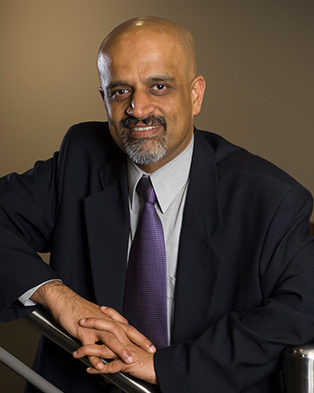
Professor Mohan Krishnamoorthy, Pro-Vice-Chancellor (Research Partnerships), The University of Queensland
Welcome address
Professor Mohan Krishnamoorthy is Professor of Operations Research at ITEE, The University of Queensland (UQ) and Pro Vice-Chancellor (Research Partnerships) at UQ. Prior to joining UQ, Mohan was Pro Vice-Chancellor (Industry Partnerships) at Monash University and was Professor of Operations Research in the School of Mechanical and Aerospace Engineering, Monash University. Prior to that, he was CEO of the IITB–Monash Research Academy, a joint-venture research academy between Monash University and the Indian Institute of Technology, Bombay. During his early career, Mohan served as the Associate Dean Research, Faculty of Engineering (Monash) and, from 1992, he was at CSIRO.
Professor Krishnamoorthy obtained his PhD from Imperial College, London and taught at the University of Kent, Canterbury before moving to Australia in 1992.
Mohan’s research interests lie in the field of integer/combinatorial optimization. He works on (and has published several papers in) areas and problems such as hub location, rostering, personnel task scheduling, machine scheduling, transportation and port logistics.
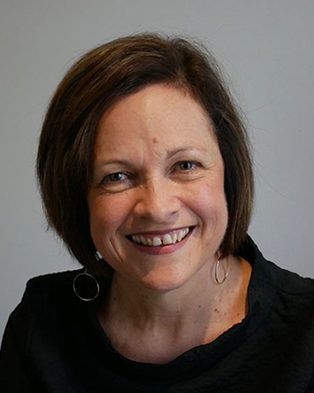
Caroline Stalker, Design Director (Urban), Principal, Arup Australasia
Keynote—Designing the 21st century city in nature: prospects for a high(er) density urbanism
Caroline Stalker is a highly skilled designer, communicator and leader of teams for complex urban design and master planning projects. Her career spans 30 years and a range of project types, including new communities, urban regeneration around transport hubs, city and town centres, universities, public spaces, public buildings, mixed use and multi-residential buildings.
Throughout her career Caroline has demonstrated a sustained commitment to enhancing people’s connection to the natural world and each other through design, and an outstanding ability to take a holistic approach to the complex design problems of cities. This has been recognised over the years through numerous architecture and planning awards. Caroline is an Adjunct Professor, School of Design, QUT Creative Industries, and has served on and chaired awards juries in both architecture and urban design and held advisory roles for government.
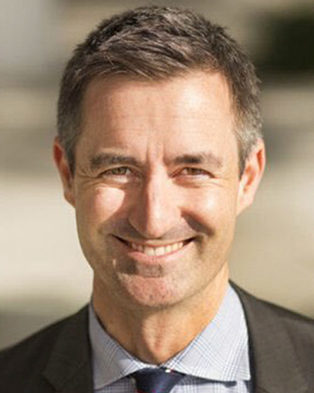
Adam Fennessy, Partner – Advisory, Government and Public Sector; Oceania Leader – Future Cities, EY
Keynote—Resilience thinking in unlocking the complexities of cities— the complementary roles of the public and
private sectors
As EY Partner – Advisory, Government and Public Sector and Oceania Lead Partner for Future Cities, Adam Fennessy covers urban planning, cities, environment, infrastructure, regional development, and diversity and inclusion. He moved to EY in 2017 after a long and successful career in the Victoria Government, where he was most recently Secretary of the Department of Environment, Land, Water and Planning (DELWP) and oversaw some of the state’s largest projects and events.
Adam is a member of the Male Champions of Change 2015 National Group and led change to embed gender equity across the Victorian Government. He was appointed to the inaugural board of Infrastructure Victoria and served on the board of IPAA (Victoria). He is currently serving on the advisory councils of the Melbourne Sustainable Society Institute and the Monash Sustainable Development Institute.
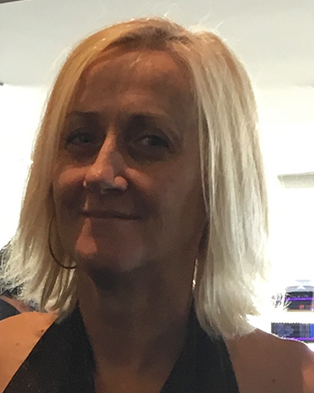
Kathy Baker, Manager, Service Sustainability, City of Gold Coast
Kathy is on a mission to build a sustainable future for the Gold Coast. Kathy has a unique 29 year background in the water industry in both the public and private sectors. She leads a team of professionals involved in catchment management, environment, water supply, recycled water, sewerage and solid waste planning. She is responsible for the development and implementation of the City’s Water Strategy, which outlines the City of Gold Coast’s commitment to the Gold Coast community to sustainably manage the city’s water, surrounding environment and assets now and into the future. The City’s Water Strategy aims to guide the transition of the Gold Coast to a city sustained and inspired by water.
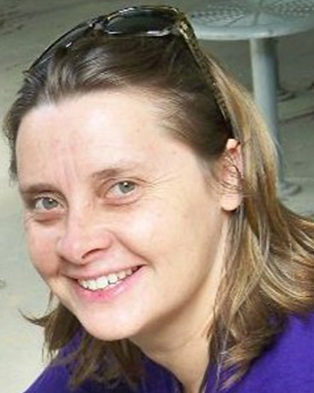
Dr Cara Beal, Senior Lecturer and Senior Research Fellow, Griffith University
Dr Cara Beal is a senior lecturer in environmental health at the School of Medicine, and Senior Research Fellow at the Cities Research Institute and School of Engineering and Built Environment, Griffith University. Dr Beal has active research interests in the fields of environmental health and science, WASH (water, sanitation, hygiene) and environmental engineering. Her research topics include water resource management, First Peoples' environmental health, remote and regional water-energy efficiency, smart asset management, social research on customer behaviour change, and community engagement. Dr Beal supervises masters and PhD students in these areas.
Dr Beal is currently working on community water management projects in the Torres Strait Islands and the Pacific and is co-convenor for the WASH course as part of the Master of Integrated Water Management at the International WaterCentre.
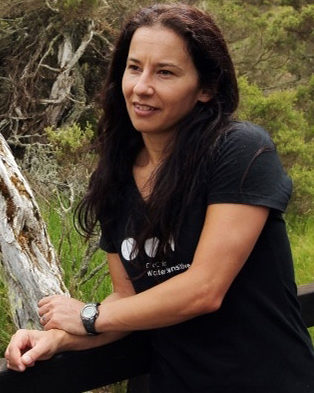
Dr Leah Beesley, The University of Western Australia
Leah’s professional focus is aquatic ecology with an emphasis on the restoration of freshwaters. She has been working for over 15 years in the field and has more than 25 publications in international journals. Leah’s research fields of interest include urban stream ecology, environmental flow science, arid riverine ecology, freshwater fish biology, and biodiversity and ecosystem function. Much of Leah’s research is directed towards scientific solutions to meet management need.
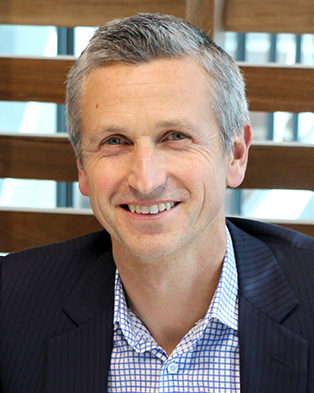
David Bergmann, Research and Development Manager, South East Water
David has been the Research and Development Manager for South East Water since 2015. He is particularly interested in making passive systems smart, the use of alternative waters, and effective use of data and resource recovery. With a PhD in Chemistry, David has worked in R&D roles in chemicals, detergents, food, manufacturing, and now water and wastewater. He is passionate about strategy, innovation and delivery of solutions that make a difference.
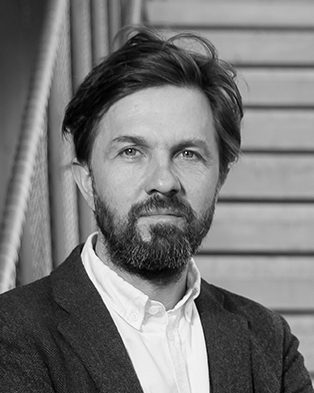
Professor Nigel Bertram, Practice Professor of Architecture, Faculty of Art Design and Architecture, Monash University
Nigel Bertram is a Director of NMBW Architecture Studio, Melbourne, and Practice Professor of Architecture in the Faculty of Art Design and Architecture at Monash University. Nigel established NMBW Architecture Studio in Melbourne with Marika Neustupny and Lucinda McLean in 1997. Their architectural work since that time has been widely published and awarded across categories, including urban design, single and multiple residential design, small public works, adaptive re-use of existing buildings and peripheral urban design strategies. NMBW's work is known for its careful reading of existing conditions, at both an urban scale and the scale of individual inhabitation.
In 2012 Nigel was appointed a member of the Design Review Panel established by the Office of the Victorian Government Architect. Nigel's current research with the Monash Urban Laboratory tests design-led processes for suburban regeneration and infill redevelopment, seeking new relationships between natural and human-made systems.
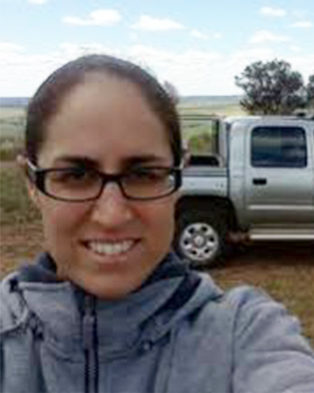
Dr Louise Blackmore, Postdoctoral Researcher, The University of Western Australia
Louise Blackmore is a postdoctoral researcher at the Centre for Environmental Economics and Policy at the University of Western Australia. Having completed her PhD studies at the CRCWSC in 2018, Louise immediately joined the organisation as a research associate working on the Subiaco case study within Work Package 5 of IRP2, in collaboration with Sayed Iftekhar and James Fogarty. This ongoing project is conducting an economic valuation of recycled water by potential non-residential users in the vicinity of the Subiaco Wastewater Treatment Plant.
Beyond water use and management, Louise is interested in various other environmental policy issues. She has previously worked extensively on biodiversity conservation, as well as lightly dabbling in climate change research. She is particularly interested in how social and psychological factors interact with financial considerations to influence human decision-making with respect to environmental management, as reflected in the focus on survey and behavioural economics methodologies in her previous work. Louise has enjoyed working on the Subiaco case study to date, and looks forward to sharing some preliminary results with attendees at the upcoming 4th Water Sensitive Cities Conference.
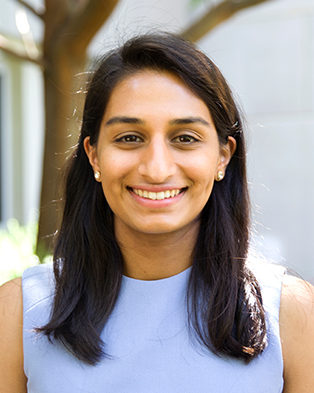
Rita Chandra, Project Manager, Urban Water Futures Division, Yarra Valley Water
Rita is in the Urban Water Futures team at Yarra Valley Water and is focused on long-term integrated planning of water resources for the community. She is informed by a diverse range of experiences including work in the property development sector and water engineering design in India. Rita has also previously served on the Engineers Without Borders Australia (Victoria) and the Australian Water Association Victorian Young Water Professionals committees. Currently, Rita is studying a graduate diploma in economics which she believes is an important complement in identifying infrastructure solutions for the future.
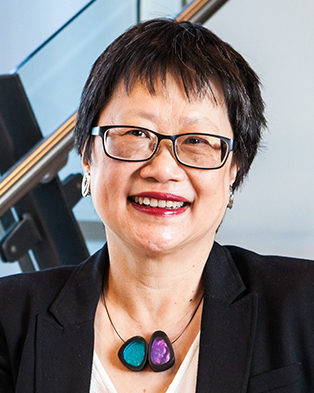
Professor Vicki Chen, Executive Dean of Engineering, Architecture and Information Technology, The University of Queensland
Professor Vicki Chen has a Bachelor of Science in Chemical Engineering from the Massachusetts Institute of Technology (MIT) and a PhD in Chemical Engineering from the University of Minnesota (Minneapolis). She was the director of the UNESCO Centre for Membrane Science and Technology and Head of School of Chemical Engineering at UNSW before joining The University of Queensland as the Executive Dean of Engineering, Architecture, and Information Technology.
While focusing primarily on bioseparations and water treatment in her earlier career, her recent research interests have expanded into surface functionalisation, nanocomposite materials as well as hybrid biocatalytic systems, the applications span CO2 capture and conversion, self cleaning/antimicrobial materials, solar cells and batteries, and hypersaline effluent treatment. In addition to numerous grants funded by the Australian Research Council, Vicki has led major collaborations with industry partners, such as BASF, Australian Low Emission Coal R&D, Dairy Innovation, Coal Innovation NSW, Bluescope Steel, Beijing OriginWater, Printed Energy, and Sydney Water, as well as three Cooperative Research Centres (CRCs) and the National Centre of Excellence for Desalination.
Vicki is on the editorial board of the Journal of Membrane Science and was formerly on the editorial board of Desalination Journal, board member of the National Centre of Excellence of Desalination, and project lead for an international linkage project with the European Union 6th Framework project MEDINA on Advanced Desalination . She was also a founding board member of the Membrane Society of Australasia and a council member of the Aseanian Membrane Society. Vicki has published over 150 papers with a H-index of 52.
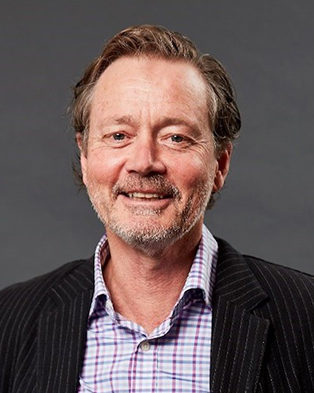
Chris Chesterfield, Project Leader IRP3, CRCWSC
Chris is nationally recognised for his leadership in waterway and urban water management and for his contribution to establishing Melbourne as a world leader in water sensitive urban design. At Melbourne Water, he was instrumental in building and leading the Waterways business, providing waterways, drainage and floodplain management and developer services to a region of five million people. His strong leadership and personal vision helped transform services with a focus on a vision of ‘Life and liveability’.
Chris was the founding CEO of the Office of Living Victoria (OLV), an agency established by the Victorian Government bringing together agencies to ensure water was planned for and used in ways that support and enhance the liveability of Melbourne. He has chaired a number of Ministerial advisory committees related to urban and water planning that have led to significant planning and legislative reforms and was recently appointed by the Minister for Water to chair the Birrarung Council, a new statutory body that brings together Traditional Owners and community to act as the ‘voice for the Yarra River’.
Chris continues to contribute to the management of Victoria’s water resources as a Commissioner of the Victorian Environmental Water Holder and Chair of the Yarra Region IWM Forum of local government CEOs and water business MDs. Currently, Chris is a key strategic thinker at the Co-operative Research Centre for Water Sensitive Cities where he leads research into integrated urban and water planning. He also continues to influence the industry through a number of advisory panels for Melbourne Water, the Victorian Planning Authority and the Office of the Commissioner for Environmental Sustainability and Urban Development Institute of Australia.
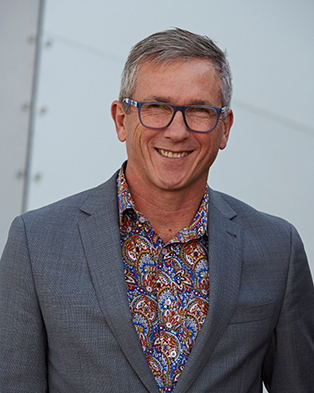
Rory Costelloe, Founder and Executive Director, Villawood Properties
Rory Costelloe, BE, Dip F.S., is the founder and Executive Director of Villawood Properties. With 35+ years of experience in local government, engineering and broad-acre development management, he is acknowledged as one of Australia’s most creative and innovative developers. From humble beginnings as a Bendigo-based property syndicate group, under Rory's hands-on management Villawood has grown to become one of Australia’s most successful and credentialed private property companies. Villawood is currently partnering with South East Water to deliver Aquarevo, which will become Australia’s most sustainable urban community.
With formal qualifications in engineering, Rory contributes to a range of sector boards and leadership committees as well as industry, academic and government think tanks. He was a board director at the Victoria Chapter of the Urban Development Institute of Australia (UDIA) for 12 years, and is currently on the Geelong Authority, the RMIT Planning Advisory Committee, and Melbourne Water Liveability Directions Panel. Rory is a guest lecturer for the RMIT Planning and Property courses, a Fellow of the Victorian Planning and Environmental Law Association (VPELA), and mentors a range of property related students and young workers. In December 2017, UDIA recognised Rory’s considerable contribution to the property industry with a Lifetime Achievement Award.
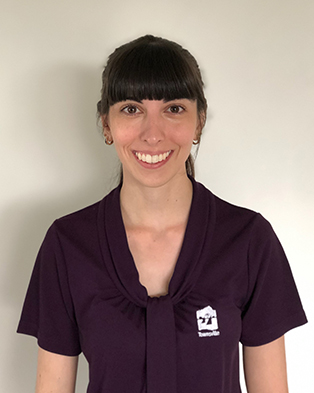
Annmarie Grasso, Technical Officer Water Educator, Townsville City Council
Annmarie commenced as a volunteer for Townsville City Council in early 2016 with Environmental Services. Working on several projects focused on sustaining waterwise behaviours gave her the opportunity to be innovative and contribute to the water sector. She has since worked her way into a full-time position as the Technical Officer Water Educator. Her role primarily focuses on providing community-wide water education, delivered through our eco-catchment tours across Townsville's learnscapes, including classroom visits to primary and secondary schools. Annmarie also develops education resources linked with the Australian Curriculum Standards for schools and early learning centres, which focus on the urban water cycle and reducing water consumption. Her approach to developing educational resources uses community based social marketing strategies and thematic communications to target specific water behaviours in Townsville.
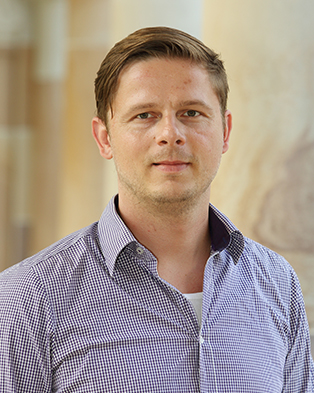
Dr Tim Hülsen, The University of Queensland
Tim Hülsen studied water science at the University Duisburg-Essen (Germany) and finalised his study with a Master degree. Afterwards, he worked as a technologist for Paques bv, in The Netherlands. At Paques bv, he was responsible for the design of different anaerobic removal technologies. He was the technology expert for the realisation of several full-scale installations in several countries. Additionally, he became phosphate-removal and anammox technologist at the company. As such, he was the product market development leader, combining laboratory research with full-scale experience to optimise the technologies. These tasks included the industrial as well as the municipal market. During his PhD he focused on simultaneous, non-destructive COD, N and P removal from wastewater, applying purple phototrophic bacteria to enable complete recovery, which is also the main focus of his work as a postdoctoral research fellow.
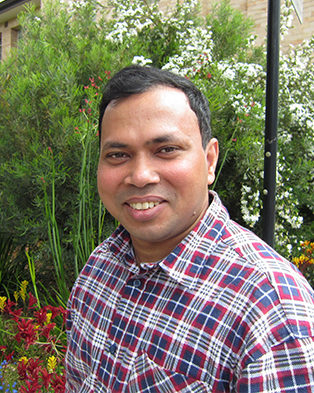
Professor Sayed Iftekhar, Research Leader, CRCWSC and The University of Western Australia
Dr Sayed Iftekhar is an environmental and resource economist. He was awarded a PhD from the University of Western Australia in 2012 where he studied the application of combinatorial auction designs for procuring environmental goods and services. He was awarded the best PhD thesis by the Australasian Agricultural and Resource Economics Society. Currently, Dr Iftekhar is a Senior Research Fellow/ARC DECRA Fellow in the Centre for Environmental Economics and Policy (CEEP) in the UWA School of Agriculture and Environment. He has published 50 journal articles and four book chapters and has delivered/contributed to more than 70 conference papers or presentations. Dr Iftekhar has secured more than AUD$2.5 million in industry grants and is leading the CRC for Water Sensitive Cities’ IRP2 project.
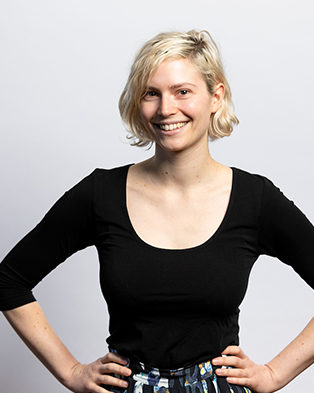
Dr Stephanie Jacobs, Climate Scientist, Mosaic Insights/Alluvium
Stephanie is a climate scientist specialising in urban climate and cooling, climate change and heat stress. She completed her PhD research in modelling urban heat mitigation strategies and human heat stress for Melbourne during heatwaves from the current and future climate. The strategies modelled included cool roofs, increased vegetation and urban irrigation. As such, Stephanie has an excellent knowledge of best practice urban responses to climate change.
Stephanie is highly skilled in spatial urban modelling, using several different urban climate models throughout her career to enable analysis of cooling strategies from the precinct scale to the city-scale. During her time at Monash University and Mosaic Insights she has modelled urban cooling for Melbourne, the suburb of Sunbury and Amaravati, a new capital city being built in India. Stephanie is also skilled in spatial data analysis. She uses a combination of the programming language Python and Bash scripting to analyse spatial data and produce publication quality maps.
Stephanie has presented her research at Australian and international conferences, winning multiple awards and recognitions, including the William P Lowry Award at the International Conference on Urban Climate. She has also conducted a range of media and outreach opportunities such as being interviewed by ABC Weather and RRR radio regarding the potential of urban cooling strategies for Melbourne.
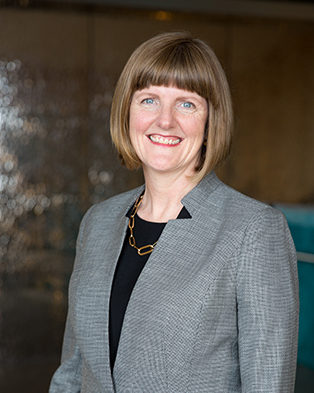
Professor Jo Lindsay, Social Scientist and Associate Dean Enterprise, Monash University and CRCWSC
Professor Jo Lindsay is a social scientist and Associate Dean Enterprise in the Arts Faculty at Monash University. In this role she works with academics from a range of disciplines and backgrounds and is interested in innovative new ways of working with partners and communities. Jo led the CRCWSC project 'Understanding social processes to achieve water sensitive futures' (Project A2.1) and is part of the 'Water Sensitive City Visions and Transition Strategies' (IRP1) project team. She is also a sociologist by trade and undertakes research on families, consumption and sustainability.
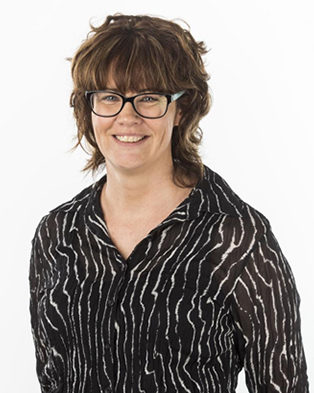
Sara Lloyd, Director, E2DesignLab
Sara has 20 years of professional experience. Drawing on reliable science and her expertise in integrated water cycle management she delivers strategic advice for water retailers, councils and state government. She has recently adapted the WSC Transition Framework for use by the Living Rivers team based at Melbourne Water, to measure an organisation’s capacity to deliver and stabilise Integrated Water Management/WSUD in mainstream practice. Sara is widely published in the field of urban water resource management. She is a proficient facilitator, communicating technically complex issues to industry stakeholders and the broader community.
Sara is a previous recipient of the Young Water Scientist of the Year Award, the Business/Higher Education Round Table Award, and the Ernest Jackson Memorial Award.
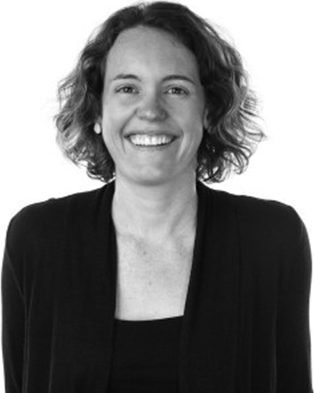
Kim Markwell, Freshwater Ecologist, E2Designlab
Kim Markwell is an environmental scientist from E2Designlab who is passionate about creating resilient and vibrant communities. She brings this enthusiasm and expertise to her day-to-day work, partnering with clients and collaborators to create thriving and sustainable places through the integrated management of water and the natural environment.
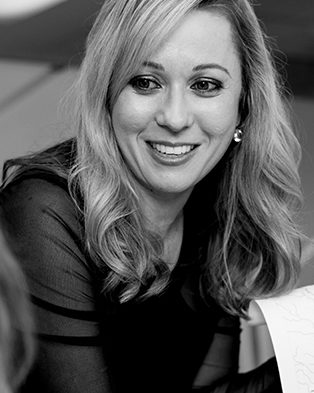
Shannon McGuire, Director, Ethos Urban
Shannon McGuire has more than 20 years’ experience working in local government, state government and as a consultant. She was the Planning Institute of Australia’s 2015 Queensland Planner of the Year for her contribution to risk based planning for coastal hazards. Shannon has presented to international audiences in Europe, the United Kingdom, Asia and the Pacific and across Australia on risk based planning for natural hazards. More recently, Shannon was the planning technical lead for the Queensland Reconstruction Authority’s Brisbane River Strategic Floodplain Management Plan Project, being Queensland’s first regional scale flood risk management plan. Shannon is passionate about the impact planning can have on improving community resilience to future climate change risks, and believes that planners are in the best position to help communities understand their risks and to shape how our cities and communities will adapt.
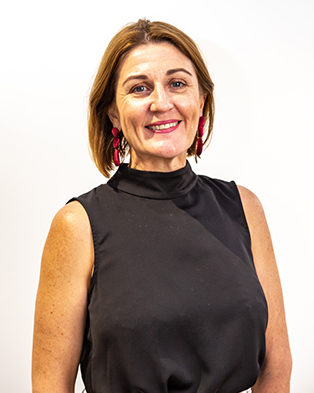
Julie McLellan, CEO, Healthy Land and Water
Julie McLellan has been the Chief Executive Officer of Healthy Land and Water since 2013. Julie has over 25 years’ experience leading high-performance organisations and is an expert in waterway management, governance, strategy, risk and company finance. Prior to her role at Healthy Land and Water, Julie held senior positions at Queensland Urban Utilities and Brisbane City Council and was responsible for portfolios including research and businesses development, innovation, service delivery and design. Julie is passionate about improving the quality of landscapes and waterways in South East Queensland through strategic initiatives and productive partnerships. She understands the importance of collaboration and enjoys working closely with all levels of government, industry groups and community members on initiatives that ensure South East Queensland is protected for future generations.
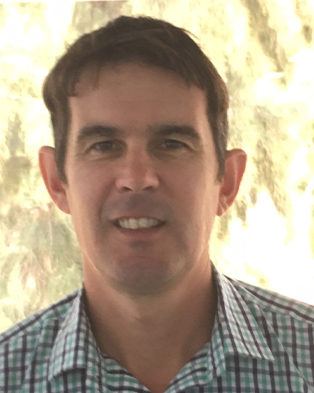
Paul Nolan, Research and Development Principal, Water Corporation
Paul is an industrial chemist with a Bachelor of Science from The University of Western Australia and an Associate Diploma in Natural Resources from Curtin University. He has over 20 years’ experience working for water utilities, with a focus on wastewater treatment and research. He is passionate about sustainability and resource recovery and enjoys leading this change through the utility sector.
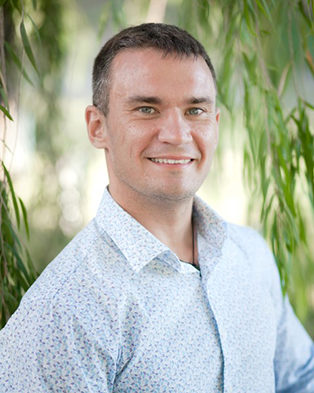
Sergey Volotovskiy, Manager, External Policy, Water Corporation
Sergey is a versatile sustainability professional with over 13 years of international experience covering a wide range of sustainable development aspects in government, private and non-profit sectors. He has a strong academic backbone with an MBA in Sustainable Management, a Master in Environmental Engineering, and a LEED Green Associate. Facilitation, public speaking, policy and stakeholder engagement are among Sergey’s greatest strengths. He is passionate about fostering collaboration, and enhancing the ability of businesses, government, the non-profit sector and community to co-create a more sustainable and liveable society. Originally from Russia, Sergey kicked off his professional path as a Director of AIESEC Australia, a national chapter of the world’s largest youth leadership development organisation. His current role is Manager External Policy with the Water Corporation of Western Australia.
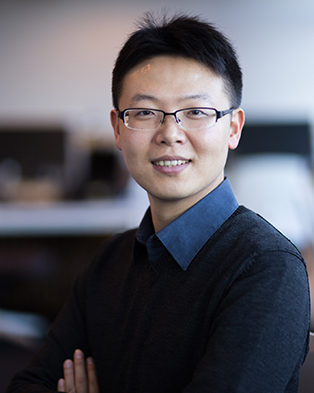
Jianbin Wang, International Engagement Manager – China, CRCWSC
Jianbin Wang is the CRCWSC’s International Engagement Manager (Asia), based in Melbourne Australia. Jianbin fosters multidisciplinary collaboration, particularly around translating research outputs into practice and incubating innovation through urban development processes.
Jianbin’s background is in environmental science and engineering and he has 12 years of professional experience in both public and private sectors. Jianbin works closely with planners, ecologists, modellers, urban designers and landscape architects to deliver water sensitive urban design and multi-functional infrastructure, to contribute to the liveable and sustainable cities agenda. Jianbin has successfully implemented a series of built projects at different scales across Australia, China, Israel and Singapore.
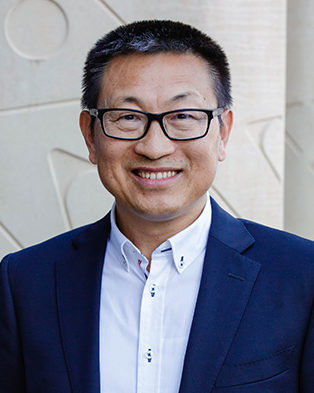
Professor Zhiguo Yuan AM, Director, Advanced Water Management Centre, The University of Queensland
Professor Yuan received his PhD degree in aeronautical engineering in 1992 from Beijing University of Aeronautics and Astronautics, China. He changed research direction to wastewater management in 1994, when he took up a postdoctoral research fellow position at Ghent University, Belgium. He joined the Advanced Water Management Centre (AWMC) at The University of Queensland in 1998. He served as the AWMC Deputy Director 2001–14, and is currently the Director. His research focuses on development of innovative solutions for urban water management through effective integration of fundamental science and applied engineering. He has to date won $45 million in government, industry and university research funding since 2001, including 23 ARC Discovery, Linkage and Fellowship grants totalling $23M million, mostly as the lead Chief Investigator. Professor Yuan was one of the founding members of the $117 million Cooperative Research Centre for Water Sensitive Cities and is Leader of the Future Technologies Program.
Professor Yuan’s achievements and leadership have been recognised through national and international awards, including the 2015 ATSE Clunies Ross Award and the International Water Association (IWA) 2014 Global Project Innovation Award (Applied Research Category) – as Project Leader. Professor Yuan is an IWA Distinguished Fellow and was named as one of Engineers Australia’s Top 100 Most Influential Engineers for 2015. He is a Fellow of the Australian Academy of Technological Sciences and Engineering (ATSE). He was awarded the highly prestigious ARC Australian Laureate Fellowship in 2017, and appointed a Member of the Order of Australia in 2019.
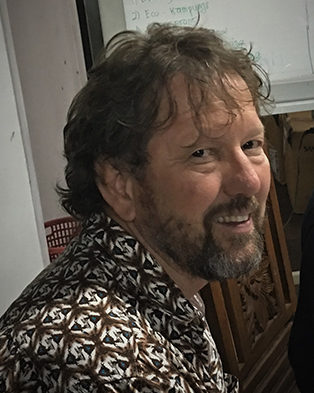
Piet Filet, Engagement and Collaboration Specialist, International Water Centre
Piet provides a facilitating/convening role in establishing and designing professional networks in themes associated with water, urban and regional design and resilience. His passion is to design and utilise engaging techniques that enable professionals to value and readily participate in networks that support lifelong learning and effective collaboration. Currently, Piet heads the Queensland Flood Community of Practice and is involved in engagement activities for the Queensland Water Modelling Network. These approaches and platforms are also being utilised in Myanmar and Indonesia.
This experience is built on a career as a land and water management specialist with rural research, consulting, WWF and local and state government policy/implementation experience. Piet’s research and policy development interests include the design and evaluation of integrated land use/environmental impacts, catchment management and flood risk management strategies.
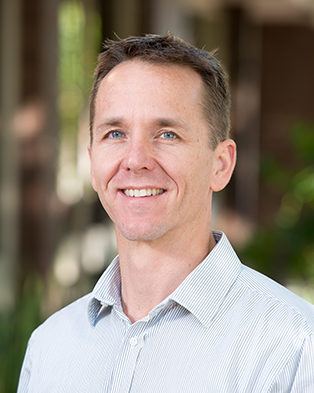
Craig Flavel, Senior Groundwater Engineer and Hydrogeologist, Water Technology
Craig Flavel is a senior groundwater professional with skills in subsurface planning and management. With qualifications in hydrogeology, engineering and business, Craig has significant experience in groundwater management and specialises in managed aquifer recharge (MAR). He is presently designing and optimising MAR schemes in urban and rural environments both nationally and abroad.
Craig has presented on water management topics from Romania to Perth, to integrate long term groundwater management with the planning of major projects and initiatives. He has been invited to Sri Lanka, China and India to provide advice to governments on how MAR can address water shortages.
As a committee member for South Australia’s Hydrological Society and International Association of Hydrogeologists, Craig helps steer contemporary discussion on water management in line with emerging market trends.
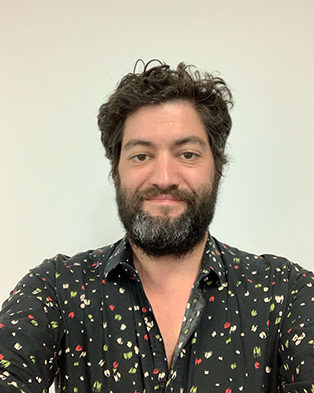
Aidan O’Neill, Head of Fishermans Bend Strategy, City of Port Phillip
Aidan has developed a detailed understanding of contemporary theories and techniques for urban planning, public policy, urban design, transport planning and infrastructure planning across a career spanning over 15 years, working in a variety of roles across state and local government. Throughout these roles, Aidan has effectively managed large and complex projects across multi-disciplinary teams spanning urban renewal, greenfield and infill development areas.
Career highlights include leading the planning for the City of Whittlesea’s Northern Growth Corridor with an ultimate population of over 200,000, developing and managing a development contributions portfolio worth over $1.5 billion, implementing the Quarry Hills Parkland project to facilitate an 1,100 hectare parkland through negotiated development agreements and, more recently, leading the City of Port Phillip’s input into the planning for Fishermans Bend (Australia’s largest urban renewal area).